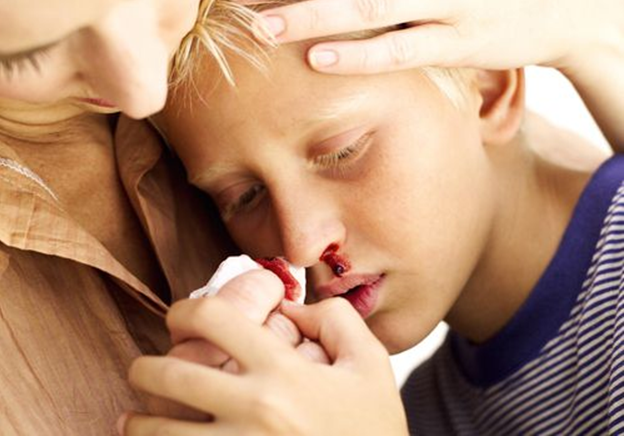How to Stop and Prevent Nosebleeds in Children

Nosebleeds are more common in children because they don’t understand the gentleness required to touch their inner nose. Nosebleeds are also often caused by nasal dryness, blowing their nose too hard, or even allergies. Nosebleeds can also occur when your child hits their nose on another object, like a ball or wall.
Parents see more nosebleeds in their children when it’s allergy season, so they find themselves buying more tissues in the spring, summer, and fall months. Allergy season is more likely to cause nosebleeds because your child is going to rub their nose and blow it more often.
Nosebleeds are very common throughout childhood, and they are usually nothing to worry about. However, if your child has more than one nosebleed a week, you may want to contact a Los Angeles nosebleed doctor to ask about chronic nosebleeds.
Stopping Your Child’s Nosebleed
Once your child’s nose starts bleeding, they may start panicking at the sight of the blood. Try to stay as calm as possible, as seeing your behavior will set an example for them. Having your child sit down will slow the bleeding. Then, follow these steps to get the bleeding to subside:
- Gently tilt their head forward slightly; the common idea seems to be that you are supposed to tilt your head back, but this is not recommended by doctors. Leaning back causes blood to run down their throat.
- Pinch the soft part of their nose below the nasal bridge. Your child should breathe through their nose while doing this.
- Have your child maintain this position for around 10 minutes. You can also use a cold compress on the nose, reducing blood flow.
Stopping this process too early may make your child’s nose begin bleeding again.
Even if it seems like a lot of blood, nosebleeds in children are part of growing up, and they are rarely serious. If your child has chronic nosebleeds, it could be due to a dry nose, so you should try to moisturize the lining of the nose. You can try:
- Using nasal saline sprays throughout the day
- Rubbing an emollient like Vaseline or lanolin inside their nostrils
- Using a vaporizer in your child’s room at night to add moisture to the air
- Keeping your child’s nails short so they are less likely to scratch the thin inner lining of the nose when picking
If your child seems to have abnormal nosebleeds or an overly sensitive nose, then you may want to mention this to your pediatric ENT doctor in Los Angeles during your next visit.
